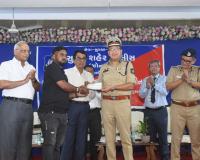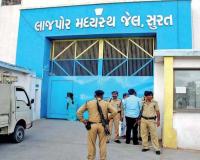Surat to Launch India's First QR Code-Based Health Survey System from June

Surat, May 16, 2025 — Taking a pioneering step in the field of technology-driven public health, the Surat Municipal Corporation (SMC) is set to become the first city in India to implement a health survey system using QR codes. Starting in June, a pilot project will be rolled out across nine zones of the city, covering a total of 1,350 households, with approximately 150 homes selected from each zone.
As per media report, this innovative initiative, proposed in the municipal budget by Municipal Commissioner Shalini Agarwal, aims to streamline health monitoring and disease prevention through digital tools. Under the plan, a unique QR code sticker will be affixed to each home, containing detailed health-related data for every family member residing there.
When scanned by health workers, the QR code will provide real-time access to information about fever cases, potential outbreaks, mosquito-borne diseases like malaria and dengue, and nearby mosquito breeding sites. The system is designed to facilitate immediate data collection, digital mapping, and predictive analysis using artificial intelligence to identify possible disease hotspots.
This data will feed into a centralized digital dashboard, enabling the health department to respond swiftly. The information will be directly linked to the city’s Integrated Command and Control Centre (ICCC), ensuring rapid coordination and response.
The QR code system will also benefit other municipal departments. When scanned by staff from the property tax, water, or drainage departments, the code will reveal relevant data such as outstanding tax dues, water meter readings, and drainage details. Residents, too, will be able to scan the code with their smartphones to access all municipal services and information related to their home.
Officials confirmed that the project would be launched before the onset of the monsoon to preemptively tackle seasonal epidemics and mosquito-borne illnesses. According to VBDS (Vector Borne Disease Control) officer Jaysukh Vaghdia, future plans include expanding the system to track vaccination status, the number of children under five, and proximity to local amenities such as health centers, community halls, swimming pools, party plots, and parking zones.
This initiative is expected to position Surat as a leader not only in public health surveillance but also in digital governance. The integrated QR code system promises to enhance coordination among departments, deliver faster and more transparent services, and serve as a model for municipalities across the country.






